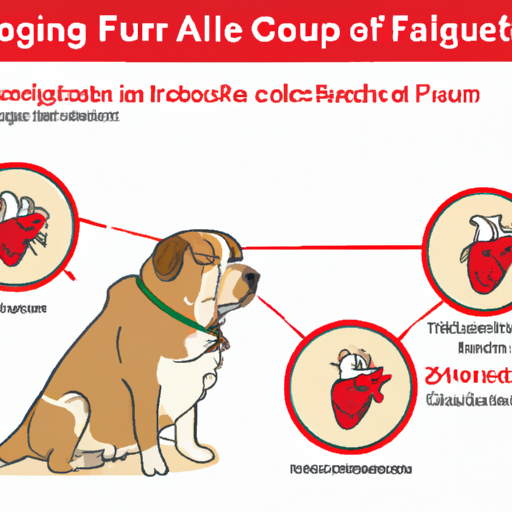As a caregiver to your furry friend, understanding the signs of congestive heart failure is essential. This knowledge could help you potentially save your pet’s life. Let’s navigate this challenging topic together, shedding light on the subtle and not-so-subtle signs of this condition.
1. Understanding Congestive Heart Failure in Dogs
Congestive heart failure (CHF) in dogs is a severe condition where the heart can’t pump enough blood to the body, leading to a buildup of fluid in the lungs, abdomen, or other body parts. It does not mean the heart has stopped beating, but it’s a serious condition that requires immediate medical attention.
2. Key Symptoms to Look Out For
As a caregiver, your vigilance will make all the difference. Here are the signs you should be aware of:
-
Coughing: Persistent coughing, especially at night, is often the first indicator of CHF. Your dog might experience difficulty breathing and may cough more when lying down.
-
Fatigue: Dogs with CHF may tire easily and show decreased energy levels. They may be less interested in play and walks.
-
Loss of Appetite: Your dog may lose interest in food or have difficulty eating.
-
Weight Loss: Sudden, unexplained weight loss can be a symptom of CHF.
-
Swelling: You may notice swelling in your dog’s abdomen due to a buildup of fluid.
3. Risk Factors for Congestive Heart Failure in Dogs
Numerous factors can increase your dog’s risk of developing CHF:
- Age: Older dogs are more susceptible to heart disease.
- Breed: Some breeds, like Dobermans, Boxers, and Small Spaniels, are more prone to this condition.
- Obesity: Overweight dogs have a higher risk of developing heart disease.
- Untreated heartworm: Heartworm disease can lead to CHF if left untreated.
4. Diagnosis and Treatment Options
Diagnosing CHF involves several tests, including X-rays, blood tests, and ultrasounds. Treatment options can vary depending on the severity of the condition and may include:
- Medications to help the heart pump more efficiently
- Diuretics to reduce fluid in the lungs
- A low-salt diet to reduce fluid accumulation
| Treatment | Purpose |
|---|---|
| Medications | Improve heart function |
| Diuretics | Reduce fluid buildup |
| Low-salt diet | Prevent further fluid accumulation |
5. Proactive Steps for Prevention
While you can’t entirely prevent CHF, you can take proactive steps to reduce your dog’s risk:
- Regular vet check-ups: Early detection can help manage the condition more effectively.
- Healthy diet: A balanced, low-salt diet can help maintain a healthy heart.
- Regular exercise: Moderate exercise can help keep your dog’s heart strong.
FAQs
Q1: Can a dog live with congestive heart failure?
Yes, with proper management and treatment, dogs can live with CHF. However, it’s a serious condition that requires ongoing veterinary care.
Q2: What’s the lifespan of a dog with CHF?
This can vary based on the stage of the disease, the dog’s overall health, and how well the condition is managed. Some dogs can live for several years with proper treatment.
Q3: Can CHF be cured?
While there’s no cure for CHF, treatments can help manage symptoms and improve quality of life.
Remember, your pet relies on you for their health and happiness. Being informed about conditions like congestive heart failure is a testament to your dedication as a caregiver. Always consult with your vet if you notice any changes in your dog’s behavior or health.



